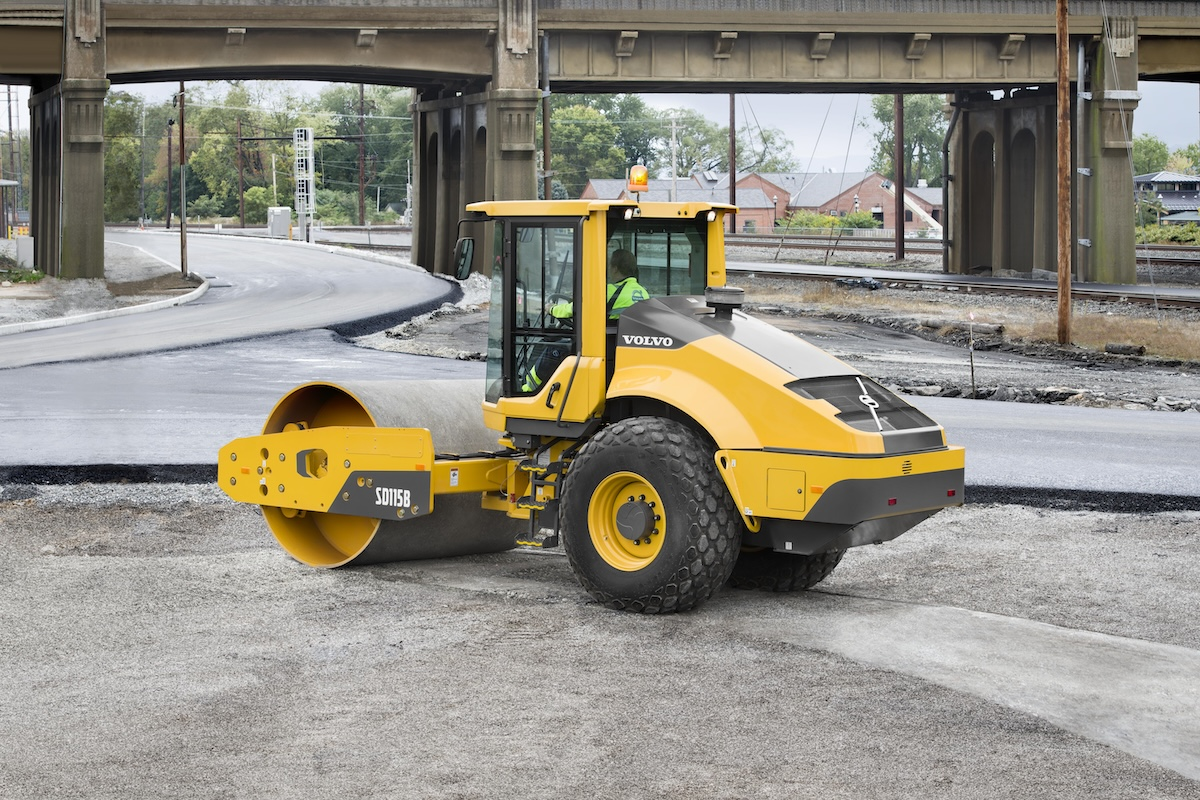Intelligent compaction (IC) has evolved significantly over the years, transforming how contractors approach soil and asphalt compaction work. This technology’s ability to provide real-time data, detailed reporting, and enhanced quality control has made it an indispensable tool for modern construction projects.
However, the complexity and data-rich nature of advanced IC systems can at times seem a bit daunting, especially for those new to the technology. The good news is that many heavy equipment manufacturers are now offering more scalable IC solutions, allowing you to choose a package or add options that align with your specific needs.
Instead of a one-size-fits-all approach, manufacturers are increasingly providing tiered systems so you can access the benefits of IC without feeling overwhelmed. This scalability means that whether you’re a small paving crew or a large-scale infrastructure developer, there’s likely an IC solution tailored for what you need.
No two compactor manufacturers are alike — those who offer IC technology with their machines do so in varying levels and/or with optional technology that can be added at a higher price point. So, at least for now, there’s no standard for intelligent compaction tiers.
For purposes of this article, however, we’ve categorized IC into three levels to help you understand where you might fit and benefit the most. We’ll call them entry-level, mid-level, and advanced, with each level providing a different set of features and capabilities.
Entry-level IC systems are designed to provide fundamental data and basic quality control. These systems often focus on the measurement of key parameters, such as compaction meter value (CMV) or machine drive power (MDP), which correlate to soil or asphalt stiffness.
Features you might expect:
- Real-time display of CMV or MDP values
- Basic data logging and reporting
- Simple mapping capabilities to visualize progress Benefits:
- Provides a cost-effective introduction to IC technology
- Helps identify weak spots and areas requiring additional passes
- Improves consistency and reduces guesswork
- GPS-based mapping for location tracking
- Detailed data logging and reporting, often with the ability to export for further analysis
- Improved visualization of compaction progress, including color-coded maps and charts
- Integration with telematics systems Benefits:
- Provides more comprehensive data for quality control and documentation
- Facilitates better communication and collaboration between operators and project managers
- Enables more precise identification of problem areas and optimization of compaction patterns
- Real-time feedback and automated adjustments to meet compaction parameters
- 3D visualization of compaction data and project plans
- Integration with building information modeling (BIM) and other digital construction technologies
- Advanced data analytics and reporting, including predictive modeling Benefits:
- Provides unparalleled control and optimization of compaction processes
- Enables proactive identification and resolution of potential issues
- Enhances project documentation and compliance
- Consider your project requirements — What level of data and analysis do you need?
- Evaluate your budget — IC systems vary in cost, so it’s essential to choose a system that aligns with your financial resources.
- Assess your team’s expertise — Ensure that your operators are trained and comfortable using the system you choose.
- Explore integration options — Consider how the system will integrate with your existing equipment and workflows.
Let’s use Volvo Construction Equipment’s intelligent compaction offering for asphalt as an example. The entry-level package, Compact Assist Start, has a simple mapping display that shows things like mat temperatures and where the operator has already compacted.
Entry-level systems like this are ideal for contractors who want to utilize compaction data without investing in more complex software or hardware.
Mid-level IC systems build upon the foundation of entry-level systems by offering enhanced data analysis and reporting capabilities. These systems typically include more advanced mapping features, GPS integration, and the ability to generate detailed reports.
Features you might expect:
To continue our example, this would equate to Volvo’s mid-level package, Compact Assist. Systems like this are suitable for contractors who need more detailed data and analysis to optimize their compaction processes and improve project documentation.
Advanced IC systems represent the pinnacle of compaction technology, offering comprehensive control, advanced analysis, and seamless integration with other construction technologies. These systems often include such features as 3D visualization, real-time feedback, and integration with other workflow tools.
Features you might expect:
To round out our example, this would equate to Volvo's advanced-level package, Compact Assist with Density Direct. Systems like this are ideal for large-scale infrastructure projects and for contractors who prioritize data-driven decision-making and seamless integration with digital workflows. The real-time feedback with advanced data and reporting helps you more easily hit daily targets — and for many contractors, that’s what makes an advanced IC system worth it.
Selecting the appropriate system depends on factors like project size and complexity, budget, and your experience with IC technology. Consulting with a manufacturer or your dealer to understand the available options can help determine the best fit for your specific needs.
Here are some things to think about:
IC technology continues to evolve as manufacturers develop new features and capabilities to improve operator performance. And by offering scalable solutions, they’re making it more accessible and adaptable to a wider range of contractors.
Whether you’re taking your first steps with IC or seeking to optimize your compaction processes, there’s likely a package available today to meet your needs. By working with dealer networks who offer scalable IC technologies on their machines, you could unlock the full potential of intelligent compaction and improve the quality and efficiency of your projects.








































































